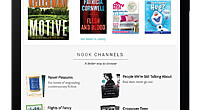
Zuckerberg took the stage at Mobile World Congress to discuss the state of the union as it applies to his Internet.org initiative (with very little being said about Facebook at all). In an appearance that felt more like a public relations stunt than an actual interview (conducted by Jessi Hempel from Wired Magazine), Zuckerberg wasn’t his usual awkward self… instead choosing to appear modest and almost pandering to mobile carriers (which maybe isn’t such a bad thing when working with them is so much easier than the alternative).
The idea behind Internet.org is to help bring the developing world online, giving users in those countries with low Internet usage access to the most-used apps available. Of course this includes the desperate need for every man, woman, and (over 13 years old) child to have a Facebook profile… right along side having access to essential services like health information and educational resources. In the end, no matter how silly it seems to put social media on that kind of pedastal –it’s about getting people online and connected.
Big telecoms have been wary of the Internet.com initiative, openly expressing their concerns that access to certain apps could eat into their bottom line (eliminating the need for money-generating services they provide, such as voice calling and text messaging). Zuckerberg did his best to calm those fears, basically saying they all need to work together in ways that make the initiative mutually beneficial. (Personally, I subscribe to the ‘evolve or die’ philosophy of business… meaning telecoms need to re-think and re-invent the services they offer instead of relying so heavily on past revenue streams.)
Connectivity is expensive. Data plans are expensive. Infrastructure is really expensive. Zuckerberg understands, but he also knows that Internet.org is capable of increasing smartphone use which should ultimately result in more subscribers than these telecoms may have had otherwise. Balancing out those expensive facts is the reality that (generally speaking) more customers means more revenue.
Ultimately, the creator of Facebook knows a thing or two about growing a business and being successful. Sure it makes a few eyes roll when Zuckerberg talks about how Facebook (and Google) get too much credit for their efforts to “connect the second half of the world to the Internet,” but a little applause is probably reasonable for those who can see beyond their own front doors.
